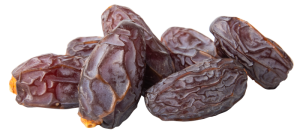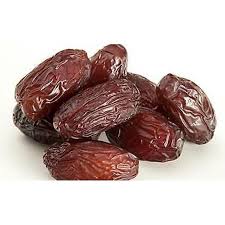
Exploring Medjool Dates: Cultural Traditions and Trade Dynamics
Medjool dates are a prized fruit known for their rich sweetness and chewy texture. However, the availability and trade of Kurma Medjool are influenced by cultural and religious traditions. In this article, we will delve into the fascinating world of Kurma Medjool , explore how cultural and religious traditions shape trade dynamics, and discuss ways in which customers can appreciate and respect these traditions when purchasing Medjool dates.
The Significance of Medjool Dates
Medjool dates have deep roots in Middle Eastern and North African cultures, where they hold great significance. They are often associated with special occasions, celebrations, and religious observances. Medjool dates are considered a symbol of hospitality, generosity, and abundance, and they play a prominent role in traditional feasts and offerings.
Influence of Cultural and Religious Traditions
Cultural and religious traditions greatly impact the trade dynamics and availability of Kurma Medjool. Here are some key factors to consider:
Harvesting and Production
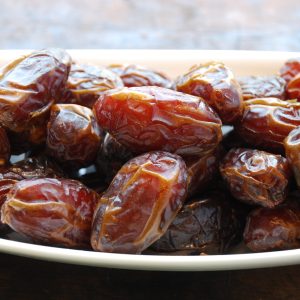
Medjool dates are primarily grown in regions with favorable climates, such as Morocco, Israel, and Saudi Arabia. Cultural practices and traditional farming techniques are passed down through generations, ensuring the cultivation and harvesting processes remain authentic and true to tradition.
Quality Standards and Certification
Cultural traditions often emphasize the importance of quality and authenticity. Many Medjool date producers follow strict quality standards and certifications to maintain the integrity of the fruit and meet the expectations of customers who value tradition and heritage.
Trade Routes and Distribution
Historically, trade routes played a vital role in the distribution of Kurma Medjool. Cultural and religious traditions influenced the establishment of these routes, creating networks that connected producers with consumers. Today, these trade dynamics continue to shape the availability and accessibility of Kurma Medjool in different regions.
Appreciating and Respecting Traditions
When purchasing dates, including Kurma Medjool, it is essential to appreciate and respect the cultural and religious traditions associated with them. Here are some ways to do so:
Source Authentic Products
Look for reputable suppliers who source Medjool dates from regions known for their cultural heritage and traditional production methods. This ensures that you are supporting authentic practices and contributing to the preservation of traditions.
Learn about Cultural Significance
Take the time to learn about the cultural and religious significance of Kurma Medjool. Understanding their role in different traditions will deepen your appreciation for the fruit and the people behind its production.
Support Fair Trade Practices
Choose brands or organizations that prioritize fair trade practices, ensuring that farmers and producers are paid fair wages and work in safe conditions. This helps to sustain the traditions and livelihoods of those involved in the Medjool date trade.
Do cultural and religious traditions that influence the trade dynamics of Medjool dates?
Here are some additional examples of cultural and religious traditions that influence the trade dynamics of Medjool dates:
1. Ramadan: Kurma Medjool holds significant importance during the Islamic holy month of Ramadan. Muslims break their fast with dates, following the tradition of the Prophet Muhammad. This high demand during Ramadan affects the production, distribution, and pricing of Medjool dates.
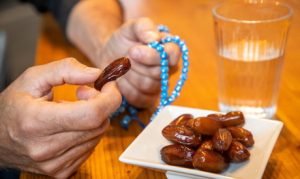
2. Traditional Festivals: Medjool dates are often featured prominently in traditional festivals and celebrations. For example, in Morocco, Medjool dates are a central element of the festivities during the annual date festival in Erfoud. The celebration showcases the cultural heritage and trade of Kurma Medjool in the region.
3. Gift-Giving: Medjool dates are commonly exchanged as gifts during cultural and religious celebrations. They symbolize hospitality, blessings, and good wishes. The practice of giving Kurma Medjool as gifts impacts the trade dynamics, particularly during festive seasons.
4. Cultural Cuisine: Kurma Medjool is integral to various traditional dishes and desserts in Middle Eastern and North African cuisines. The popularity of these culinary traditions influences the demand for Medjool dates and drives trade dynamics in the regions where these cuisines are prevalent.
5. Heritage Preservation: Cultural and religious traditions associated with Kurma Medjool often emphasize the preservation of heritage and traditional practices. This focus on heritage preservation impacts the production methods, quality standards, and trade dynamics of Kurma Medjool.
These examples highlight how cultural and religious traditions shape the trade dynamics and availability of Kurma Medjool. By understanding and respecting these traditions, both producers and consumers can contribute to the preservation and sustainability of this cherished fruit.
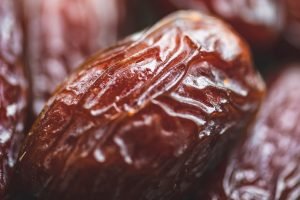
| Key Highlights of the Blog: |
| – Medjool dates are significant in Middle Eastern and North African cultures. – Cultural and religious traditions influence the trade dynamics and availability of Medjool dates. – Harvesting and production methods are shaped by cultural traditions. – Quality standards and certifications maintain authenticity. – Trade routes and distribution networks are influenced by cultural and religious traditions. – To appreciate and respect traditions: – Source authentic products. – Learn about cultural significance. – Support fair trade practices. – Examples of traditions: Ramadan, festivals, gift-giving, cultural cuisine, heritage preservation. |
Conclusion
Medjool dates are not only a delicious and nutritious fruit but also a product deeply intertwined with cultural and religious traditions. By understanding the influence of these traditions on trade dynamics and availability, and by appreciating and respecting them when purchasing Kurma Medjool, we can honor the heritage and preserve the authenticity of this cherished fruit.
